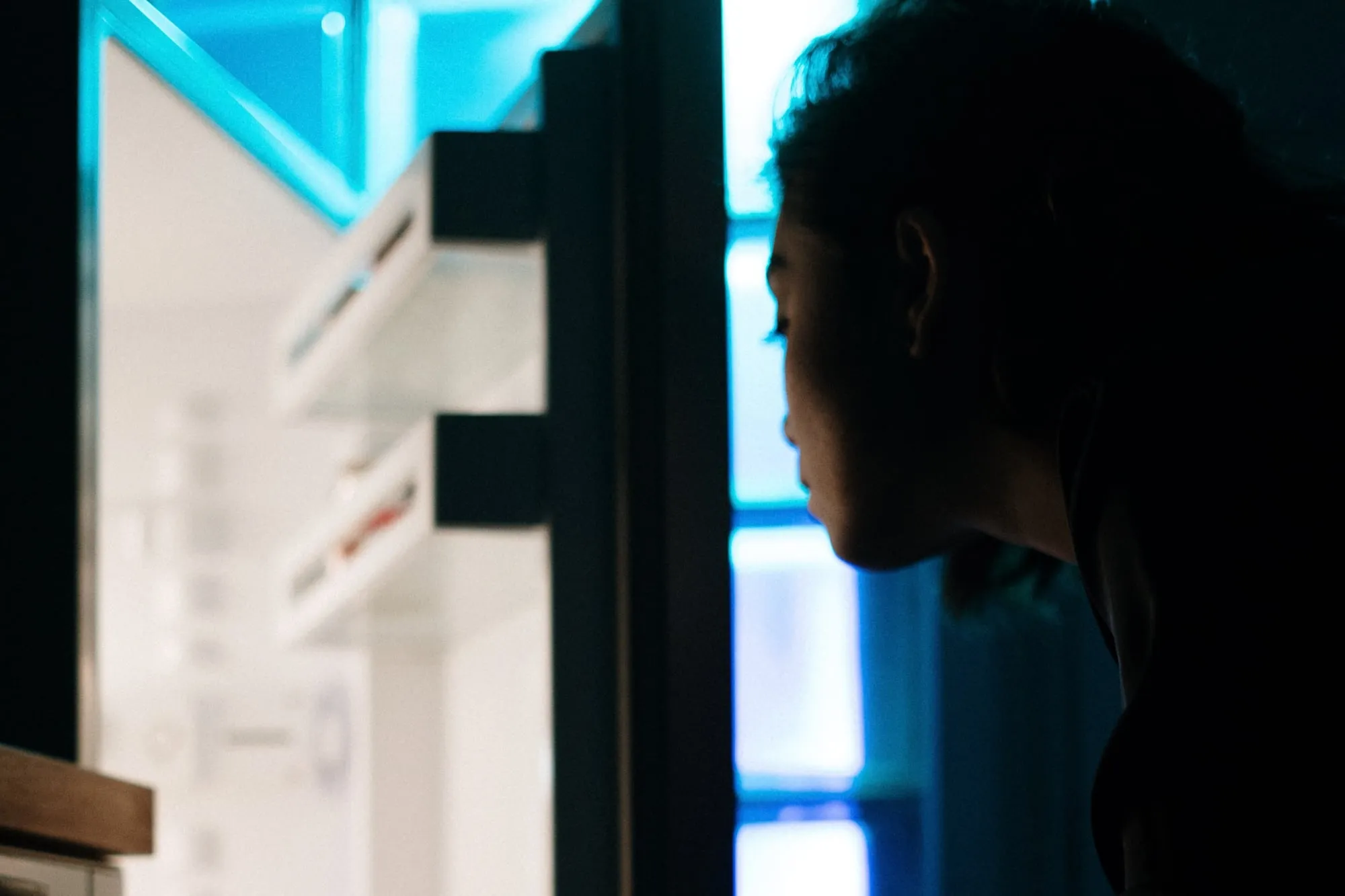Late night eating & sleep
When considering the answer to the question, “is it bad to eat at night'' it is helpful to understand the relationship between digestion and sleep.
Some people may find that eating late at night disrupts their sleep, so eating earlier in the day works better for them. A recent study in the journal Stress & Health found that high-fat, high-protein meals consumed around 10:00 p.m. disrupted sleep, because this type of meal is digested slowly. Furthermore, the process of digesting a late-night meal increases hormonal activity linked to stress, which can keep you awake at night. (1)
If you are struggling to sleep at night, it may be helpful to evaluate your eating habits. If you tend to have a heavy meal close to bedtime, this may be the cause of your sleep disturbances. In this case, evaluate whether you can move your evening meal to earlier in the day. If late-night meals have simply become routine, you could consider moving dinner a few hours earlier. If shift work or busy evening schedules make it difficult to have a full meal at a reasonable time, it may be beneficial to have a quick protein shake or snack early in the evening, and finish the night with something light and easily digestible, like a granola bar, to keep you satiated.
The effects of late-night eating on health
Another argument sometimes made against late-night eating is that it can be harmful for your health. For example, there is some evidence that late-night meals can increase the risk of type 2 diabetes. A study in the British Journal of Nutrition found that consuming large, high-glycemic index meals (those that rapidly increase blood sugar levels) in the evening reduced the body’s sensitivity to insulin, which study authors concluded could increase diabetes risk. (2)
If you’re trying to reduce your risk of health problems, or if you have diabetes, it may be beneficial to consume larger meals earlier in the day, and to have a smaller meal in the evening. You might also consider foods that are lower on the glycemic index (low GI) when planning your evening meals. Low GI foods slowly increase blood sugar levels, in contrast to high GI foods, which rapidly increase blood sugar. Foods like white potatoes, white bread, and donuts are high on the GI index, whereas brown rice, boiled spaghetti, apples, carrots, beans, and nuts are lower on the GI index and may be healthier options for nighttime eating. (3)
Night eating syndrome
While some people may have a need to eat later in the day, others may live with a condition called Night Eating Syndrome (NES), which leads them to compulsively eat at night. A person with NES may struggle with Circadian Rhythm disorder and often wakes several times at night to eat.
When an individual lives with NES, it can feel as if it is impossible to get back to sleep without eating something. Individuals with NES may have a low appetite during the day, and they eat a significant portion of their calories at night. Someone with this condition is not sleep-walking when they eat at night; they are fully awake and aware of the fact that they are eating. (4)
If you have NES, it is important to seek treatment, because the disorder can interfere with your daily life. It’s difficult to get enough sleep when you are waking frequently to eat, and research suggests that NES is linked to other problems, like depression, anxiety, diabetes, high blood pressure, and high cholesterol. Treatment can involve counseling, medication, and the use of mind-body exercises to help you relax and fall asleep. (4)
The bottom line on nighttime eating
So, is it bad to eat at night? Having a late-evening meal in and of itself is not harmful. In fact, if you have a busy schedule that prevents you from getting the nutrition you need earlier in the day, having a late meal can be necessary, and going without it could prevent you from getting the nutrients you need to function your best. In addition, if you are a shift worker who cannot have an evening meal until later, you may have to alter your eating schedule to make it work for your lifestyle.
If late night eating is necessary for your lifestyle, there are some food choices that may be better than others if you want to nourish your body and stay healthy. For example, heavy, slow-to-digest meals that are higher in protein and fat can keep you awake, so if you need to eat at night, it may be best to have a larger meal earlier in the day, and stick to a light evening meal. Furthermore, eating foods that spike your blood sugar levels in the evening can increase diabetes risk, so it’s important to consider this fact when eating a later evening meal.
While there is nothing wrong with eating a nighttime meal if it’s required for your lifestyle, keep in mind that sometimes, night-eating can be a result of a bigger problem. If you’re waking up in the middle of the night to eat, or if you find yourself binging in the evening and then struggling to sleep at night, it is time to reach out to a professional. Our clinical care team specializes in eating disorders, and can work with you directly to develop an eating schedule that works for your needs. Together we can help you explore any underlying physical or emotional conditions which may be leading you to compulsively eat at night.
You might be interested in




















